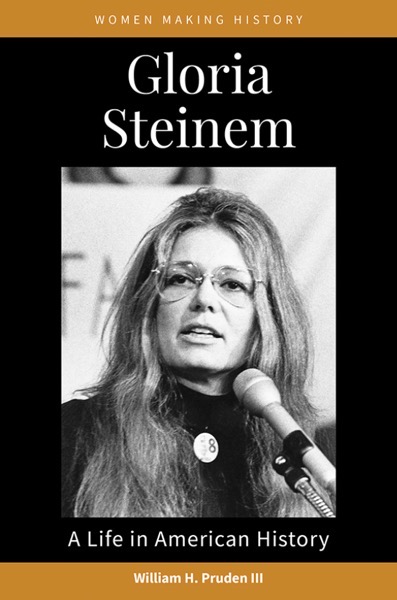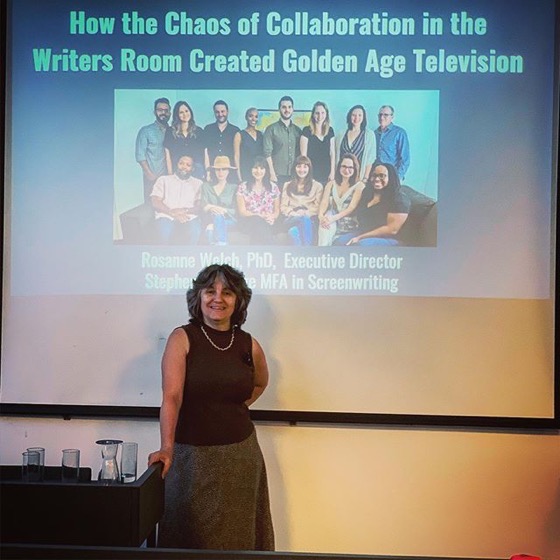Watch the entire presentation – Worry and Wonder | The Courier Thirteen Podcast | Episode # 29 here
Transcript:
Host: I don’t know how you’ll feel — how you feel about this Rosanne but like do you think that’s a problem with a lot of shows in general, that they try to take an approach and just make it more like and it gets too outlandish that you don’t even believe it at a certain point.
Rosanne: I think that is. One of the words that everyone is tired of hearing around town is can it be edgier? Show me something I haven’t seen when in fact what really works is to watch people you care about go through believable situations and come out on the other side — find their way through it, That’s kind of what people look for when they’re watching a drama particularly. You want to see that other people have survived things that might be in your world. As you said before, people you know that we have in our families with addiction or issues of other kinds. People going through divorces. That’s a very dramatic thing for a teenager to see happen to their parents, even for someone in their 20s. I had a friend who her and her husband knew from the time the kid was about 12 they were got to get a divorce but they made the assumption that it would be bad to have divorced parents in high school. So they made a deal they’d wait till the kid was 18 and graduated. So here’s a kid who thought his family was perfectly normal and then you know they graduate from high school. Daddy and I are breaking up and it was like — so everything you believe to be true is all blown up. So that’s a legitimate experience for someone and I think if you just go deeper into those experiences and how people manage, that’s much more dramatic and interesting than oh my gosh, my daughter’s having an affair with the senator and now his you know chief of staff is sending a hitman to kill her so that it won’t ruin his political campaign. Ehhh. No, let me just see a kid get through his parents being divorced because that’s really tough and that’s going to connect me to that person for a long time.
It’s always fun to sit down with students and share stories about entering the television industry and how things work at all stages and I had that opportunity the other day.
Daniela Torres, a just-graduated (Congratulations!) student of the Columbia College Semester in LA program asked me to guest on a podcast she had recently begun hosting with another college student she met during her internship (good example of networking in action!).
We could have talked all morning (the benefit of a 3 hour class session) but we held it to about an hour and fifteen minutes or so. Hopefully, along the way I answered some questions you might have about how the business works. So often it amounts to working hard at being a better writer and gathering a group of other talented, hard-working people around you so you can all rise together.
Dr. Rosanne Welch is a television writer with credits that include Beverly Hills 90210, Picket Fences, ABCNEWS: Nightline and Touched by an Angel. She also teaches Television Writing and the Art of Film at San Jose State University.
Rosanne discusses what made shows like Beverly Hills 90210 compelling, what to do and not to do when attempting to pitch a show to broadcast or streaming, what most young writers neglect in their writing process, and much more!
The Courier Thirteen Podcast is available on YouTube, Spotify, Apple Podcasts, SoundCloud, and Audible.
Podcast: Play in new window | Download
Subscribe: RSS
![13 Can It Be Edgier? from Worry and Wonder | The Courier Thirteen Podcast [Video]](https://rosannewelch.com/wp-content/uploads/2021/08/rmw-courier-13-13.jpg)
![05 Margaret’s Education from Concord Days: Margaret Fuller in Italy [Video]](https://rosannewelch.com/wp-content/uploads/2021/08/rmw-concord-day-2021-fuller-rome-05.jpg)

![12 90210 & Teenage Lives from Worry and Wonder | The Courier Thirteen Podcast [Video]](https://rosannewelch.com/wp-content/uploads/2021/08/rmw-courier-13-12.jpg)
![04 Sex and Marriage from Concord Days: Margaret Fuller in Italy [Video]](https://rosannewelch.com/wp-content/uploads/2021/08/concord-04.jpg)

![11 Even More On Beverly Hills 90210 from Worry and Wonder | The Courier Thirteen Podcast [Video]](https://rosannewelch.com/wp-content/uploads/2021/08/rmw-courier-13-11.jpg)
![03 Transcendentalism and the 1960s from Concord Days: Margaret Fuller in Italy [Video]](https://rosannewelch.com/wp-content/uploads/2021/08/concord-03-1960s.jpg)
![24 Conclusion from How The Chaos Of Collaboration in the Writers Room Created Golden Age Television [Video]](https://rosannewelch.com/wp-content/uploads/2021/08/srn-porto-24.jpg)


![10 More On Beverly Hills 90210 from Worry and Wonder | The Courier Thirteen Podcast | Episode # 29 [Video]](https://rosannewelch.com/wp-content/uploads/2021/08/rmw-courier-13-10.jpg)